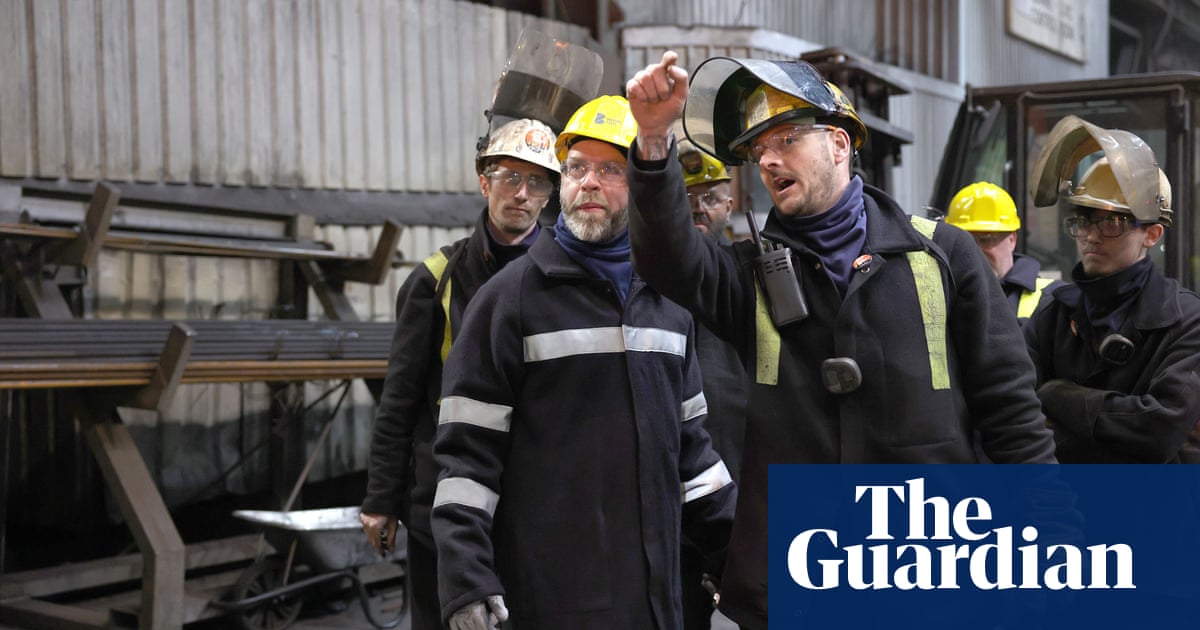Photo credit: www.theguardian.com
The UK Business Secretary has not dismissed the possibility of job losses at the Scunthorpe steelworks, despite union demands to halt the ongoing redundancy process initiated by previous owners.
During a visit to Immingham docks to supervise coal and iron ore deliveries meant for the Scunthorpe facility, Jonathan Reynolds highlighted that the plant may require a “different employment footprint” following government intervention. This step was taken after it was discovered that the previous owner, Jingye, a Chinese company, was attempting to sell supplies and expedite the closure of the plant’s blast furnaces.
Reynolds stated, “For British Steel’s long-term viability, it is essential to find a private sector partner to collaborate with our government in a rejuvenation program,” reflecting a strategic vision for the plant. He noted the potential for introducing new technologies and facilities which could alter the employment landscape at the site, acknowledging the workforce’s understanding of the necessity for a sustainable future.
Reynolds further commented on the historical significance of the blast furnaces, emphasizing their nearly century-long service to the country and the importance of planning for their future instead of facing an abrupt shutdown that endangers numerous jobs. “What we’ve accomplished, in collaboration with the remarkable team at British Steel, is to secure a more hopeful future – I am confident we have made the right choice for the workforce here,” he added.
His remarks came as the GMB union pushed to halt the redundancy program initiated by British Steel last year, which could lead to the closure of both blast furnaces and the loss of jobs for over half of the plant’s 3,500 employees. GMB’s national officer, Charlotte Brumpton-Childs, expressed expectations that immediate redundancy threats would be lifted, advocating for collaboration with the government to ensure a viable long-term strategy for the Scunthorpe steel sector.
Reynolds faces the dual challenge of securing the necessary resources to keep the furnaces operational while also searching for a suitable long-term buyer for the plant. The government is keen on finding a private sector firm to assist in financing the establishment of a new electric furnace, a crucial element in British Steel’s £1.25 billion decarbonization initiative.
Although Reynolds had initially asserted he would not allow another Chinese entity into the UK steel industry, he appeared to soften his stance, leaving the door open for potential future involvement of such companies. “A Chinese firm would be assessed differently,” he stated, reinforcing the notion that the government’s previous interventions were reactive to a particular company’s mishandling of interests critical to the UK.
This shift in rhetoric from Reynolds reflects a broader governmental strategy to mitigate political repercussions arising from the British Steel situation. Over the weekend, he suggested that Jingye’s actions could have been an intentional act of sabotage against the UK steel industry. However, by Monday, officials began to clarify that they viewed Jingye’s decisions as driven purely by business motivations.
Concerns surrounding the potential implications of Chinese investment have resonated through the political landscape, with prominent Labour figures expressing caution. Liam Byrne, chair of the business select committee, recently asserted the need for diligence regarding who controls foundational industries and infrastructure critical for the nation’s functionality.
Source
www.theguardian.com

